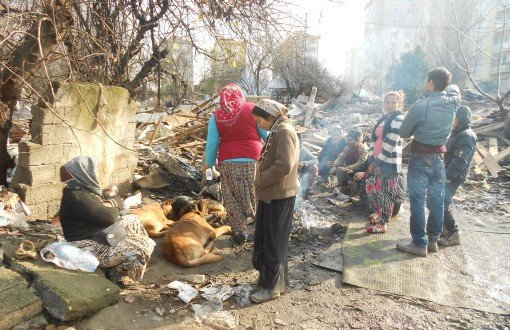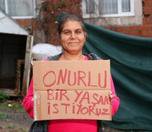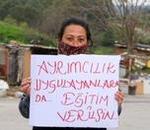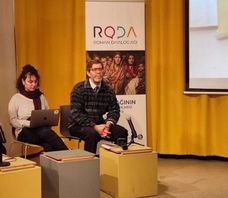Click to read the article in Turkish
The Covid-19 pandemic has had a devastating impact on Roma communities in Turkey, exacerbating existing inequalities and leaving many families struggling to make ends meet, according to a new report by the Roma Memory Studies Association.
The poverty level among Roma has increased significantly during the pandemic, with the average monthly income of Roma citizens was 1,426 lira as of early 2021, which was well below the national poverty line of 2,825 lira at that time.
The pandemic has also had a disproportionate impact on Roma children, according to the report. Many Roma children have been unable to attend school due to the closure of schools, and those who have been able to attend have faced significant challenges in accessing distance learning. As a result, many Roma children have fallen behind in their education.
Discrimination and stigmatization
In addition to the economic and educational challenges, Roma communities have also faced increased discrimination and stigmatization during the pandemic. This has made it even more difficult for Roma families to access essential services, such as healthcare.
The lack of official data on the Roma population in Turkey has made it difficult for the government to track the impact of the pandemic on Roma communities and to develop targeted interventions. This lack of data has also made it difficult for Roma communities to advocate for their own needs.
"The pandemic has exacerbated the already existing inequalities faced by the Roma community," said Elmas Arus, Chairperson of the Zero Discrimination Association. "The government needs to do more to support the Roma community and ensure that they have access to the same opportunities as other citizens."
Fikret Adaman, a professor of economics at Boğaziçi University, said that the Roma have been hit hard by the pandemic, both economically and socially. "The pandemic has pushed many Roma families into poverty. This has made it difficult for them to meet their basic needs, such as food and shelter."
Gökçe Yeniev, a research assistant at the İstanbul Planning Agency, said that the government needs to collect and disaggregate data on the Roma population so that it can better understand and address their needs. "The government needs to know who the Roma are and what their needs are," she said. "Without this information, it is impossible to develop effective policies to support the Roma community."
Economic crisis after the pandemic
The report lists the following problems faced by the Roma community in turkey during the pandemic:
- With a population of approximately 3 million to 6 million in Turkey, the Roma have faced many inequalities such as deep poverty, discrimination and stigmatization.
- The deep poverty suffered by Roma in the pandemic. 'According to the results of the "Roma Communities and Poverty Survey in Turkey" dated 2021, the average monthly income of Romani citizens is 1,426 lira.' According to the same survey, 77.5% of the Roma experienced unemployment problems, 57.5 percent of them are renting, 83.2 percent of them are heating with a stove, 59 percent of them did not consume meat even once a year.
- The economic crisis after the pandemic has weakened Roma children's acces to their right to education.
- The children could not attend the lectures broadcast on television because some families did not have television or electricity in their homes.
- Roma, who suffered income loss during the pandemic, were exposed to inequalities in accessing social assistance. Only 37.8% of Roma received aid from public or private institutions during the pandemic; 83.7% of these aids were in kind aids.
- That 10-15% of Roma in Turkey do not have access to health services at all; 20 to 30% have partial access. (AÖ/VK)







